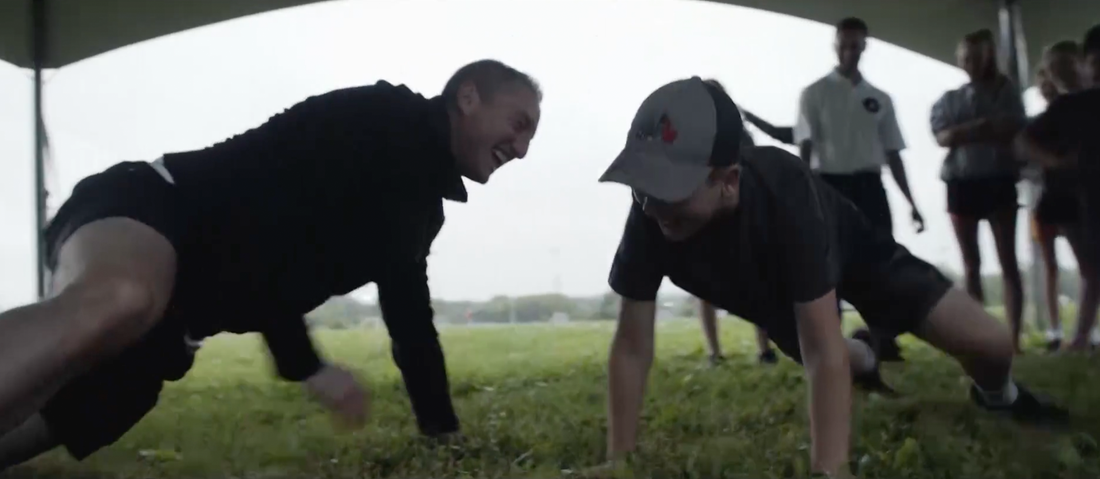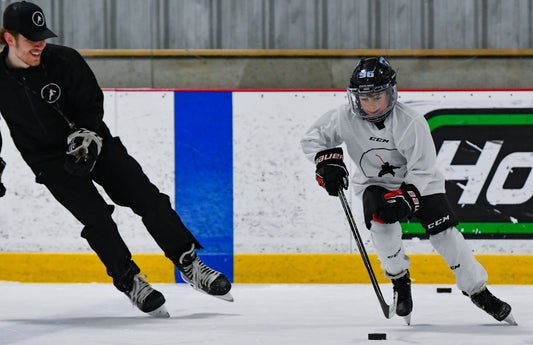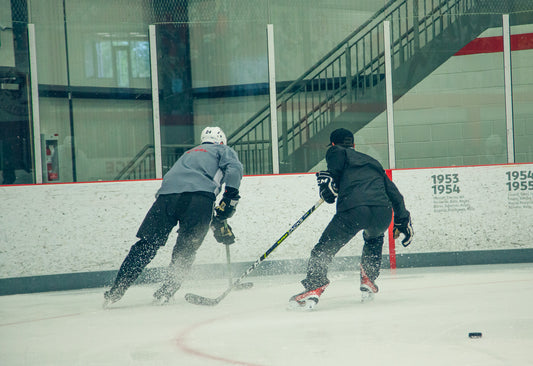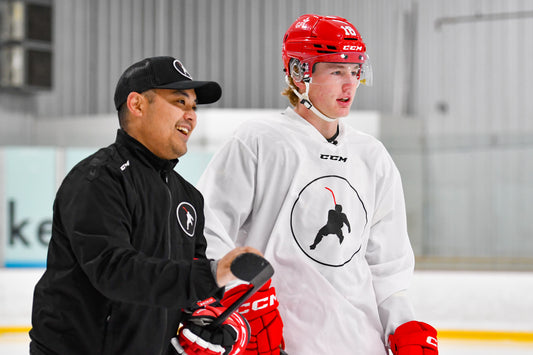Hockey, Hockey and more Hockey? What about being an athlete?
It’s that time of year again, you know it as parents. The hockey season is winding down or maybe you’ve just won the playoff championship. For some of us parents we welcome the break from 5-6 days a week of running to the rink, dry land training and video sessions. That’s per kid. And guys (parents) that is 100% ok. The amount of love and work you give your kids is inspiring! But…are you ready on April 1st to roll again and start spring hockey? The grind of getting back to the rink, running to dry land sessions and weekend tournaments? Also I think the even bigger question is whether or not your kids ready for that grind again?
Hey, we get it. More work capacity equals increased results, right? Sometimes. It all depends on the kid, and they’re all built differently in body and mind. How does work capacity work for everyone? Unscheduled play. Pure Fun.
Erik Karlsson once told me that he never played competitive hockey until he was in PeeWee. In Sweden, during that time, certain clubs had firm philosophies on how to develop their athletes. Another one that comes to mind is Roman Josi. Unscheduled play. Mom and Dad we’re supportive but they taught their kids to play to enjoy the game, take pleasure in the moments and experiences. In their view, there was lots of time to learn how to be competitive. It certainly worked for them. Imagine a North American family embracing this concept, most people would think they we’re crazy.
Another consideration is the value of time. It’s a tough balance. Play hockey 24-7 and balance out some team play, development, off-ice training and unscheduled play? Is there really time for anything else? And now it’s the spring and we are going hit rewind and do it all over again? Be careful. Work capacity does not always guarantee success. So is there a right or wrong way? Probably not. You need to really know your athlete. Where they are at in their maturity both physically and mentally.
Through our Partners in Performance program at Perfect Skating we’ve learned from the countless pros we’ve worked with that there are many ways to reach maximum performance.
Here are a couple of constants:
1) Time off: Player’s that reach maximum performance balance time off with work capacity. That traditionally involves 2-4 weeks after the season, periods of rest during the off-season which are engrained in their strength and conditioning program.
2) Focus on becoming a better athlete: Especially at a young age when the nervous system is in full fledge development, learning multiple movement patterns and motor skills from different sports helps sport specific performance. There are tons of research to support this claim. Help your athlete be an athlete.
3) Balance: Life balance is everything. It’s important to get your on-ice capacity work and on-ice development addressing weaknesses and strengths. It’s important to play games and enjoy unscheduled play. Maybe get involved with a proper off-ice program that includes mobility, stability, strength, speed, agility and quickness. It's so important to have fun while building your athleticism playing multiple sports, and spending some time improving your academics and SAT scores. How about sprinkling in some time for family and friends, maybe doing something good for people, or volunteering and making your community a better place. Is that it your saying? Man, how is there time to do anything else?
Being an elite athlete requires a ton of commitment. The best ones have shown us they sprinkle in some time off, focus on being a better athlete and really understand how to work in an effective life balance. It’s important to find your winning recipe, to paint your masterpiece and enjoying every inch of the way in the process to being the best you!
Good luck, have fun, go get it!




